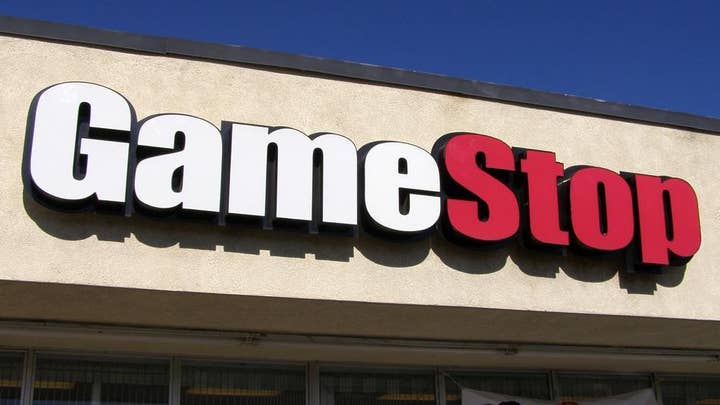GameStop brushes aside concerns about Xbox One and used games
Following the earnings call, we analyze the year ahead for GameStop as controversy over Xbox One and used games heats up
GameStop is, of course, having a rough year as consumers anticipate new consoles, and retail of game hardware in general has been dropping in double digits. Still, the company's 6.8 percent sales decline from last year (down to $1.87 billion) is better than it could have been, buoyed by GameStop's increasing mobile and digital sales. GameStop spun it positively, noting the company's increased market share for games even while overall sales fell. Digital (up 47 percent) and mobile (up 290 percent) are growing rapidly, but they are still tiny compared to the overall sales.
GameStop is a pretty large canary in the coal mine, given that the company sells almost half of all the new PS3 and Xbox 360 software in the US market. What does the company see ahead for the gaming industry? A rough time in the next quarter, with few big releases and looming holiday next-gen console launches combining to keep sales depressed. However, GameStop is raising its expectations for the full year now that two new next-gen consoles have been announced for the holidays.
The company's optimism stems from its market model. GameStop introduced its market model to analysts on the last earnings call, and provided a bit more detail this time. Essentially, the company combined info from research firms, game publisher statements, and its own historical data to create an overall model of the market for the next few years. Crunching all the numbers, GameStop expects that 2013 will be below 2012 for overall sales, but that 2014 will see solid growth, as will 2015, with next-gen consoles driving that growth.
"I figured that question would come up; Microsoft has said they will support [used games]"
Tony Bartel
GameStop also expects that the current consoles will continue to sell well for the next couple of years, based on what happened with the Xbox and PS2 once their successors were introduced. It's a reasonable assumption, given that pricing on the current consoles will likely be reduced even more as next-gen consoles come into the market. A $99 Xbox 360 or PS3 should do well; both consoles will continue to have important new releases for at least the next year or so.
Unsurprisingly, GameStop had to wrestle with repeated questions from analysts about the Xbox One and its ability to play used games. GameStop president Tony Bartel pointed to statements from Microsoft: "I figured that question would come up," Bartel said. "Microsoft has said they will support it." Analysts continued to press the issue, referencing rumors that Microsoft might charge a fee for used games, and finally CEO J. Paul Raines said "We've got to let Microsoft take the lead" on that issue. GameStop, like everyone else, is expecting Microsoft to make things clear at E3 about used games, whether the console needs to be always-on, and other such details.
The concern is that a fee for used games might squeeze GameStop's margins on used games, but that's down the road a ways before it might become a significant factor; there would have to be a lot of next-gen consoles and games out there first, and that won't happen until at least a year from now. Still, GameStop derives 30 percent of its revenues from used games, and nearly half of its profits; anything that affects that is an important concern.
A greater concern which no one raised in this earnings call is if it's no longer possible to get some money for selling a used game, customers may be less likely to buy games in the first place. That would lead to an acceleration of current trends, with AAA games doing better and midlist games and new IP suffering even more. With Microsoft not looking to cater to indie game developers, the amount of titles for the Xbox One could suffer in the long run.
"The amount of trade currency is far bigger than anyone's marketing budget; if you'll support it, we can activate it"
J. Paul Raines
That dystopian future is something GameStop is lobbying to avoid; from the sound of it, GameStop is continuing to make its case for used games as a benefit to both Microsoft and Sony (as well as third-party publishers). Raines noted that GameStop's PowerUp members have 24 million old consoles in their homes, and collectively their hardware and software is worth over $1 billion in trade credit. "The amount of trade currency is far bigger than anyone's marketing budget," said Raines "If you'll support it, we can activate it" he said, referring to Microsoft and Sony.
GameStop is busily pushing digital sales, mobile, and buy-sell-trade for tablets and smartphones while anticipating that new consoles will revive its core business. It's a reasonable assumption for the near term; new consoles from Sony and Microsoft will probably sell well over the holidays, at least to the hard-core fans. The longer-term question is whether those new consoles will follow the sales pattern of the Wii U and drop off sharply the next quarter, or continue to sell strongly. The greater software support promised (both by the manufacturers and third-parties) would seem to preclude a Wii U scenario, but GameStop is positioning itself to take advantage of whichever way the market turns.
Investors certainly seem to believe that, with GameStop stock up about 50 percent from where it began the year. A clearer picture of next-gen consoles, the software lineup, and how used games will work in the future should be coming soon at E3. Watch GameStop's stock after the show to see what investors think about the implications.

